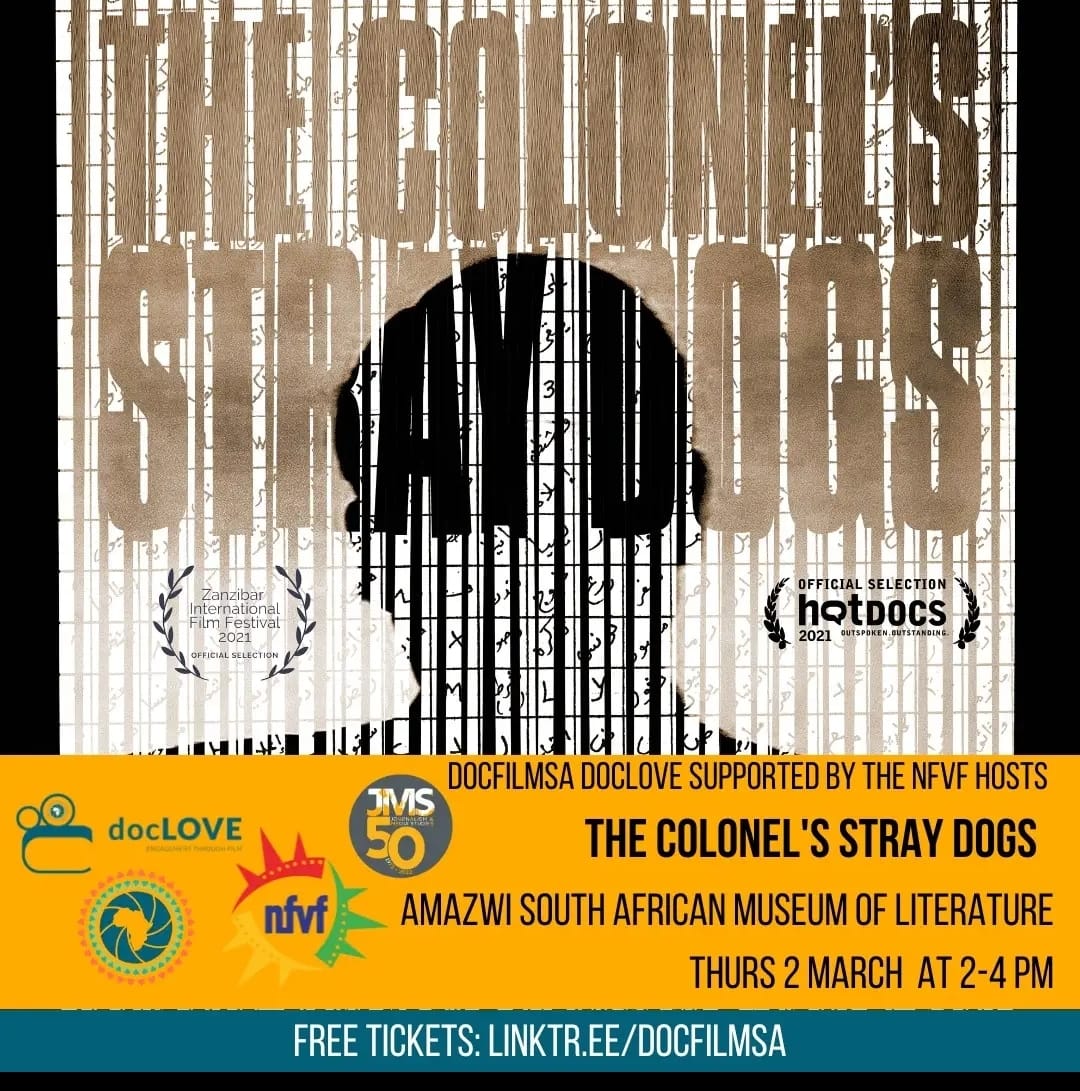By Buhle Andisiwe Made
Film editor and Wits University lecturer Khalid Shamis presented his film titled ‘The Colonel’s Stray Dogs’ in a screening at the Amazwi South African Museum of Literature on Thursday, 2 March 2023.
Khalid, born of South African and Libyan heritage, tells the story of his father, Ashur Shamis, a Libyan political activist and journalist. Ashur Shamis lived in exile in the United Kingdom since 1971, as the Libyan government saw him as an enemy of the state. Colonel Mu’ammer Gaddafi – revolutionary and former president of Libya, labelled Shamis as enemy number one and had a bounty of one million dollars (equivalent to R18,57 million by today’s standards) on him.
Shamis’ main objective was to have a free Libya and to see the liberation of the country that once was his home. Khalid opened his documentary with a disarming and rather personal statement: “For the forty years he was in exile in England, it felt like killing Gaddafi was more important to him than living with us.”
In October 2011, Gaddafi was assassinated by his people. That moment was significant to the people living in Libya and a moment of history for Ashur Shamis, who had spent most of his life fighting against the leper and his government. “At that moment, all I could think about was my dad,” said Khalid. He added that it was at that moment that he saw a window of opportunity to create the film and reconnect with the lifelong experiences of his father.
The political allegory documents its effect on Khalid’s family, and the filmmaker felt compelled to write this critical narrative. “I needed to bring these narratives out to the public because the narrative of a country collapsing under a tyrant reign does not exist if it is not told,” said Khalid.
Khalid mentions that the film is not an attack towards his father but rather a gentle recapturing of their shared past. Now as an adult, Khalid finds it easier to approach his father and reminisce about his father’s involvement in the fight to liberate his country, especially since Ashur missed out on a lot of Khalid’s childhood.
The archives, edited together, staccato throughout the film and vividly detail the ordeals that not only the Libyan people faced but Khalid’s father too. Ashur’s life is translated into that of a secret agent during a war, with numerous disguises and a library of identity documents. As a young teenager, Khalid felt obliged to ‘wear a badge of honour’ whenever he spoke about his father’s reputation during his years in exile. He adds that to him, his father was a superhero and in a way, that helped him to deflect from reality in the culturally dense city of London. Khalid added that he could use music, especially Hip Hop music, as a form of escapism from the reality of his father’s formidable persona.
According to Khalid, his father powered through his defiance of Gaddafi with support from Khalid’s mother and his Islam faith, which carried both Khalid’s parents during the uncertain times of exile.
On his father’s faith, Khalid stated that the hardest parts to portray in the movie were those of his father’s different affiliations with his Muslim organisations. And the portrayal of Libya in the then-present time, it was important for the editor to capture the country for what it was instead of creating a different or detached narrative, as he and his family were not as familiar with the state.
The experiences of his father’s exile shaped Khalid’s Pan-African perspective and have allowed him to be more open to meeting and enjoying other exciting views. It has also allowed him to raise his children in a fair and understanding manner, allowing them to grow up and never to feel overwhelmed by their forefathers and their roles in history and society.
Khalid Shamis does not affiliate himself with any organisations, neither here, in South Africa, Libya or England, but encourages humility and a vital sphere of faith.
During the screening, fourth-year film student Yolanda Pondo said, “Documentaries provide us with an opportunity to both understand and connect with the world at large.” And although Khalid’s film is central to his father: it is his father’s bravado of going against such a prominent figure in history and standing for what is essential, freedom—giving others a dream of hope of what could have been for Libya.


